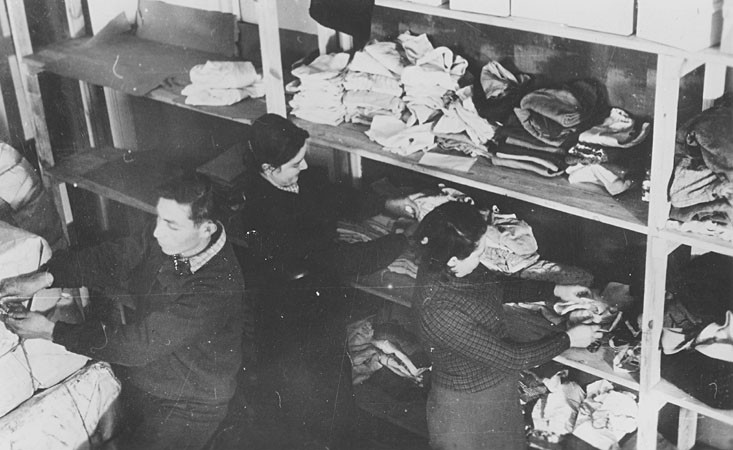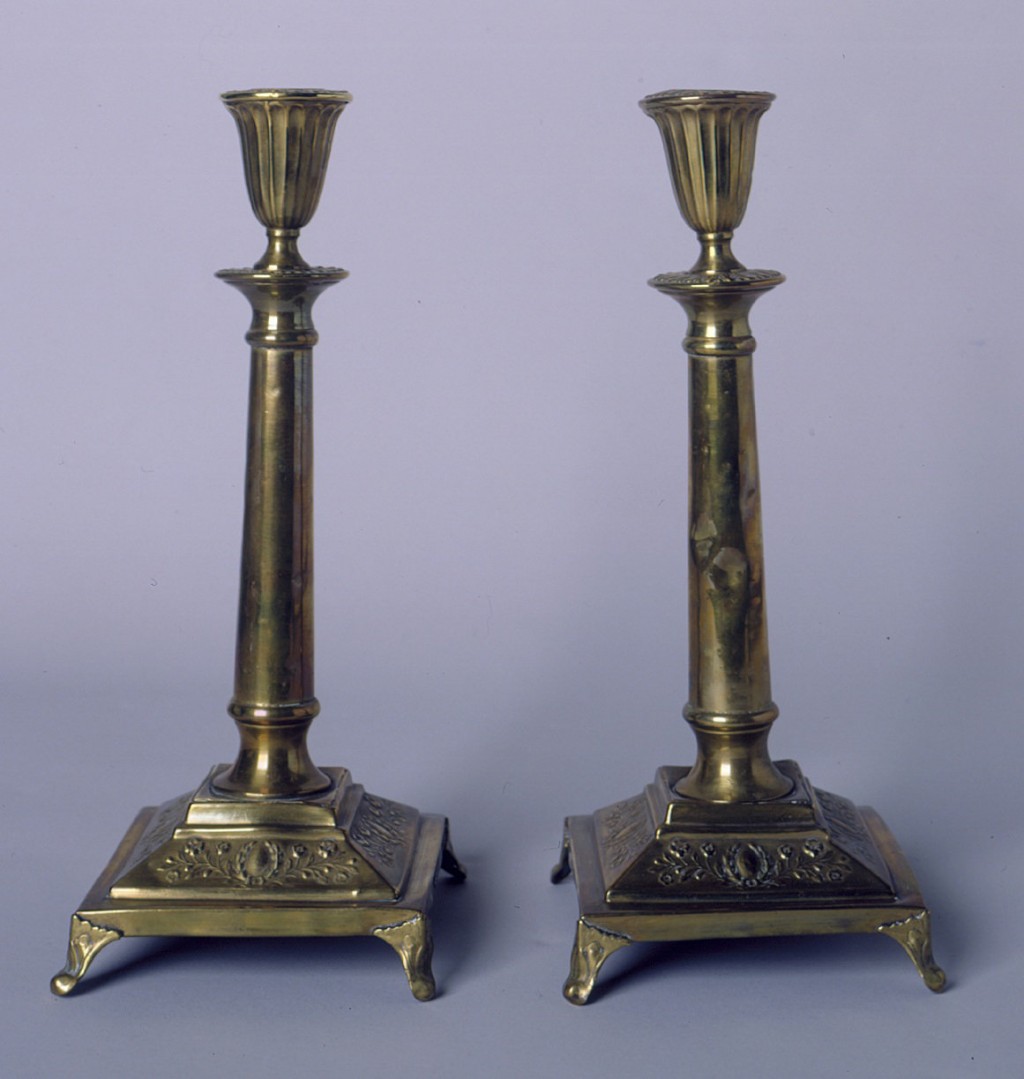
Polish Jewish Refugees in Lithuania, 1939–40
Background
The outbreak of war in Poland in September 1939 trapped nearly three and a half million Jews in German- and Soviet-occupied territories. In late 1940 and early 1941, just months before the Germans began to kill Jews on a mass scale, one group of about 2,100 Polish Jews found a safe haven.
Few of these refugees could have reached safety without the tireless efforts of many individuals. Several Jewish organizations and Jewish communities along the way provided funds and other help. But the most critical assistance came from unexpected sources: representatives of the Dutch government-in-exile and representatives of Nazi Germany's Axis ally, Japan. Their humanitarian activity in 1940 was the pivotal act of rescue for hundreds of Polish Jewish refugees temporarily residing in Lithuania.
Refugees in Lithuania
In the fall and winter of 1939, an estimated 15,000 Polish Jews found temporary refuge in politically independent Lithuania, most of them in Vilna. The Jewish refugee population in Vilna was composed largely of adult males, since they were the most likely to face persecution in occupied Poland. It also included families who had the financial means to escape the dangers of war and occupation. Most of the refugees came from the educated Jewish elite of prewar Poland and represented a variety of cultural, religious, and political beliefs.
Those transplanted from war-torn Poland included groups of Zionist youth, who sought to build a Jewish homeland in Palestine, as well as rabbis and students from Poland's prewar yeshivas (religious academies). Both the Zionist youth and the rabbis and their students resumed their studies and training activities in Lithuania. There were also businessmen, lawyers, teachers, journalists, and physicians. Many recognized that they would be temporarily unemployed in Lithuania or sought volunteer work in the refugee community.
In soup kitchens and cafes, writers and political activists met to discuss the war. Many wanted to leave Lithuania. Plans for further emigration stalled because Lithuanian authorities–in an effort to remain strictly neutral in the war–prohibited Polish nationals of military age from leaving the country.

The refugees had fled Poland with few belongings and were barred from employment in Lithuania. Most of them thus had to depend on charity. The largest share of relief funds came from an American Jewish charitable organization, the Joint Distribution Committee, which channeled funds through Jewish refugee aid committees in Vilna and Kovno. The "Joint" (as the JDC was called) sent a dynamic American, Moses Beckelman, to work with Yitzhak Gitterman, a refugee who had moved the organization's Warsaw office to Vilna. This energetic team set up group homes and soup kitchens, distributed clothes and shoes, and provided other aid to the refugees.
The refugees worried about loved ones back home. While all Polish citizens suffered during the early months of the German occupation of their country, the segregation and Nazi persecution of Jews included roundups for forced labor, orders to wear special markings, and the establishment in Lodz of the first major ghetto to confine Jews. Many refugees attempted to bring family members into Lithuania, but for every person who entered the country illegally, another failed. Other Jews chose not to flee because of the risk of arrest or the desire to keep families together.
News from home helped alleviate refugees' feelings of anxiety and guilt, but letters were opened and read by censors, limiting communication. Uncertain of their future and concerned about relatives still in occupied Poland, the refugees could only hope that the war would end soon or that Lithuania's neutrality would remain undisturbed. Both hopes proved unfounded.
Soviet Occupation of Lithuania
On June 15, 1940, Soviet forces occupied Lithuania. Soon after, Soviet and local Communist authorities began transforming the country's economy and government. On August 4, 1940, Lithuania formally became the Lithuanian Soviet Socialist Republic after a rigged plebiscite. The new regime unleashed the Soviet secret police (NKVD) to target anti-Communists on both the political left and right. In Vilna and Kovno, politically active refugees laid low. Some assumed false identities.
Lacking permanent residence and employment, all refugees were vulnerable. Many did not want the relative safety of assuming Soviet citizenship because that would end their hopes of returning home. Rejecting Soviet citizenship, however, meant risking deportation as "unreliable elements" to Siberia and other barren locations, a fate already suffered by tens of thousands of refugees living in Soviet-occupied eastern Poland.
Thousands of Polish Jewish refugees in Lithuania sought desperately to leave the country before January 1941, the Soviet Union's deadline for accepting Soviet citizenship in Lithuania.
Critical Thinking Questions
- What challenges did European Jews face if they escaped to another country? Are these similar or different for refugees today?
- How did local officials and Jewish communities respond to the plight of the new arrivals?
- What obligations do other countries have to refugees in need?

